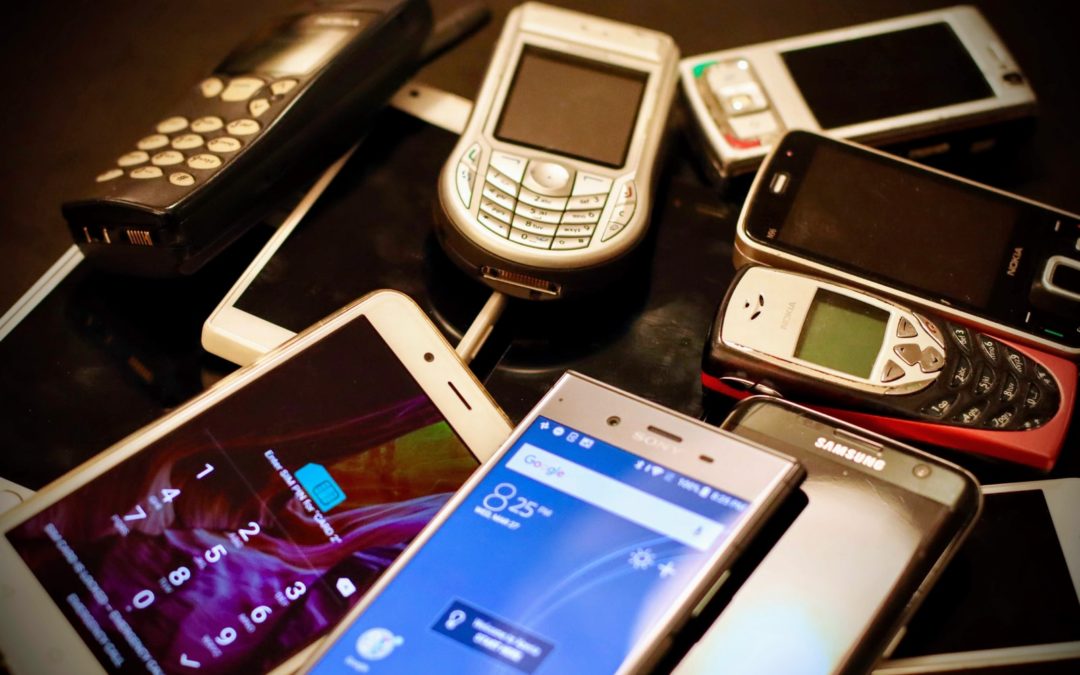
by admin | Aug 14, 2022 | Declutter
The place you call home is a special place because you intentionally chose it. Of course there may be a few exceptions where you were given no option about living there, or because you inherited it. Bummer! Seriously though, you did choose to rent or buy or move to this place which you call your own space, the place you live and where you have stamped your style.
When you stand in the front doorway of this place how do you feel?
On the first day you saw it as an empty space and before you started to bring in your own things, can you recall the emotions you felt as you looked around? It's no accident that you live here.
Sure, there may have been a round about way by which you made the journey to end up in this location and in this apartment or house, but this is where you are. Deal with it and accept it. Now you can truly make the space your own.
The place you call home is connected with all the other spaces around you and the world you inhabit. It reflects you by the way you store things there and by what you bring into the home. As your habits and collections and accumulation changes, so too does the mood and energy of the home adapt to this. Your space is a being in the sense that it is a happening, adapting, changing place as a result of how you, your possessions and your guests, visitors and family members interact with it. Even if the items in the building do not change or swap around for months at a time and the general energy of the house is low, quiet and close to static, you are still moving in the space, the contents of the food cupboards are constantly changing, post is delivered, new items from shopping trips come into the space and other things are used, finished with and removed from the space. In this most basic way there is subtle change each and every day, even though at first glance we might not realise this.
Your home is alive and existing as energy. You are not separate from your home because it is a part of you. It is a reflection of how you think and feel, just as much as you develop by the way you personally interact with the space that is offered to you. The rooms of your home are a representation of how you think and feel, a reflection of your own energy.
Everything in life is composed of energy, of molecules and tiny atoms clustered together as different forms of 'stuff'. Wood and plastic are different materials, but each composed of a set of compressed atoms. Oak, pine, larch and sycamore are all wood types, albeit with a different composition. They each have their own form of energy and this is what you pick up on when you touch the different things in your home. Add to the physical makeup of each item, the emotional energy attached to every piece of furniture, glassware, DIY tool, or art work, books, clothing and bikes.
Ask yourself some simple questions and listen to your answers:
- Which area of the home do you feel happiest in?
- Where is the emotional heart of the building?
- Which part of the house do you gravitate towards when you feel unwell because in this space you feel cosy, safe and cared for?
If your home is a place of harmony, love, hope and goodness, then it stands to reason that it should first be a place of sanctuary for you. It needs to be a space where you can be relaxed and completely yourself. For this to happen to the best degree possible you need to tailor the space you live to meet your own character, aspirations and to work with and support your own value system. This is where you spend your most relaxed time, where you are private and alone, as well as where you can relax with friends and with loved ones. A home is where you can be at your most vulnerable and most intimate. Here you can be completely true to your best you.

by admin | Aug 10, 2022 | Simple Self Help
You created these wonderful little people. They came into the world because of you. Take the time to consider the many wonderful things you can do to make their life a little better for having been here.
I don't care whether you are still with their other parent, and what happened between you along the way. To a large extent this does not concern me, except that it does as the father of two children myself. In fact I get riled when I hear people say that a single parent, regardless of whether they are raising the child or not, is of less value than two parents who raise their children together. You created a child in love and you have a responsibility, no matter the distance that may exist between you today.
Leaving an emotional legacy does not mean something that they only consider or discover after you have gone, though that in and of itself could be a nice thing for them. Instead I mean that your child would one day feel they know you better if you can tell them what it was like for you when you were a kid, that they could derive confidence and knowledge from understanding how you got through the tough times, which ones made you want to give up and how you overcame the challenges that allowed you to be who you are today.
Does your child know what it was like for you to grow up in the street where you lived?
Do they have any idea about the crush that you had on that other child in the second year at school, or the way your class teacher would tell funny jokes and make up crazy stories on the school bus when you went to the swimming baths with your whole form from school?
Have they ever heard the songs that your own parents would sing you to sleep with at night, or seen the words to that song written down for them? I know I have and I am so much richer for the experience.
What about the plays you were in at school or the friends you had in the youth club, or the choir, the cadet force, the community walking holiday or the summer camp, or whatever story you have to tell them?
Can you remember that time when you learned that the world was not just the place where you lived, and that there was even more out there than you had ever dreamed possible?
How about the time that your grandparents showed you some piece of their own history, and you sat and listened to them telling you about how you were a part of that history yourself? It could have been a photograph, a map, a medal, a uniform, a programme from a play that they were in or an ancient playground game they had enjoyed as a child themselves.
Take the time to get this down and shared with your own children because one day they may well want to have a sense of belonging to the family and need to tell the story to their own children.
I remember a walk in the countryside with my Dad Peter, my Grandad Tom and my great Grandpa Charlie. For years it was a sort of imagined color movie scene, vague and blurred in my mind. Then when I was in my forties and had two sons of my own, my father found and gave me a photograph of that day and made it seem more real and more special than ever before. It also showed me that my memory of those happy times as a toddler had been right.
Just writing about that discovery brings tears to my eyes again today, but do you know what? The fact that the picture existed and my Dad gave it to me in an electronic or digital scrapbook of family pictures meant so much to me and I have shared these images with my own boys, explaining to them who was who in each picture and hoping they may one day be motivated or interested enough to do the same.
So get on with it soon. Put that scrap book together for them to have something special to hold onto, to look back at and know where they came from. Include in it some pictures you drew as a kid yourself, a photograph, a few pages from an old school report, some stories about your parents and the places you have lived, a diary extract, a letter from a relative, or a joke from an old school friend.
Leave them with something that reveals more of you and allows them to know what a wonderful human being they came from.
Take a chance and spend some time simply being yourself with them. Allow them the chance to see the open, friendly, loving and caring person inside you and they might just remember that moment for the rest of their lives.
And always, always, no matter how far you may be from them, remember their birthdays, for the day they came into the world was then and always will be truly special.
Just like them.

by admin | Aug 4, 2022 | Declutter
In our current state of digital connection and constant online access there is always a temptation, a distraction away from the core values we once driven by. How many hundreds of times have you sat at your laptop or device with the intention of taking 10 minutes to connect and catch up before getting on with the core task that you wanted to focus on and to achieve for the day, only to find yourself two hours later, adrift in the weird world of social media and without the energy or perhaps even the memory for that quickly forgotten priority? Apparently, we can check our mobile phone as much as 150 times in a day! Yesterday I read an article which claimed we spend 2 hours and 40 minutes scrolling through social media in a day! That's just an average.
Everyone wants your attention, from Facebook, to Instagram, to LinkedIn, Spotify, and Snapchat. You receive updates from coupon companies, cinema promotions, local events, requests for a Like from a business, an invite from a friend who is starting a side hustle. Someone likes a Tweet you made, so you look at their profile and their feed for anything of interest. The technology behind the cell phone in your hand is far greater than a corporate super computer from twenty years ago. Each time you check a feed or a status update your brain gets a dopamine kick that serves your need for more points of data consumption. Friends of friends or even perhaps your own friends are - according to social profiles - leading lives of incredible ostentation, shopping, overseas travel and perfect family lives. Or so it seems when you click and watch, click and gawp, click and waste your time.
You have the ability to use online access thoughtfully and consciously, so why don't you. If you work eight or nine hours a day and come home to look at your screen while eating instead of connecting with family, if you lose hours every evening in wandering from one digital feed to another, then you can lose dozens of hours in a week. That same time, when used with deliberation and intent, can deliver to you additional free time for family, for love, for the accomplishment of your goals and for the investment of your energies into activities and hobbies that you love.
Spending time in these chosen blocks of time is what makes you who you are at your best, allows people to enjoy your company, and gives you that connection to the values you hold so important and which - if I were to ask you about them - you could reel off easily. What matters is not being able to talk about them, but having the ability, capacity and available time to spend your energies in such actions.
Rather than engage constantly with your screen take time to consciously look at the world we inhabit, to have eye contact with people as you walk on a street and travel on a bus or a tube. To look up at the signs and art and window displays and at the great kindness and beauty around us. To connect with people rather than pass them by without even realising they were in the same space as you.
You can create some simple rules for yourself, or guidelines if you want to be less dramatic or at risk of your own control.
Here are some practical steps to reduce time lost forever to the state I refer as 'device addiction'.
1. Switch your phone off for certain times during the day
2. Don't have it in your bedroom at night.
3. Have regular times when you are not accessible by phone.
4. When you are in one call do not put the first person on hold to take the second call.
5. Use voicemail as an aid to help you reduce stress, only pick up messages on a regular basis, perhaps twice a day or four times a day and not just because your phone beeps to tell you there is a message.
6. Have separate email accounts for different roles of your life so you only check the one that is relevant at a given moment.
7. Check your personal email just once a day. It really can wait.
8. Check your work email at certain times throughout the day, perhaps twice in the morning and again twice in the afternoon.
9. Use a footnote in your outbound emails that suggests the timescale within which you will review and respond.
10. Set up an auto responder to incoming email that clearly states your availability or lack of availability to respond.

by admin | Jul 22, 2022 | Simple Self Help
Fear can be crippling in the way it affects your thinking and begins to push its way into your conscious and un-conscious thoughts. The fear of the unknown is one aspect that can be dealt with in a logical way, i.e. if it is unknown then there is an element of being able to contain and explain the fear.
However, where fear is about exaggerating existing ills or troubles and making them many times worse, this can be destructive to those experiencing the fear as well to the people around the person with the fears. You know that the damage from an accident has been limited to a certain amount, or that the nature of the relationship is such that when one person says this the other always says that, but does nothing more. Yet, when fear takes hold of a view on perhaps the damage from the accident or the anger within the relationship, fear will magnify the issue far beyond realistic proportions and can cause huge pain and suffering where the person going through the fear is unable to assert his or her reality onto the fearful thinking.
The exaggeration of small concerns or fears can be such that one party in the conversation or relationship can see the distortion that the person going through the fear can no longer perceive. When this happens it can be very challenging for the observer to stay within the context of the conversation or discussion before the whole situation grows out of proportion.
Seeing only from a perspective of logic is not always helpful to the person experiencing the fear either! Many times I have heard from clients where one person is in the grip of a fear that they cannot truly explain to their more logical partner. Sometimes the best solution is not for a solution to be found at all, but for the person going through the fear simply to be heard out with what is hurting them and causing them such anguish. They may just need to be heard, not provided with the answer.
As human beings there is an ancient survival need for us to experience elements of stress, worry and fear. How else would we have survived attacks from sabre-toothed tigers and woolly mammoths millions of years ago if it had not been for these emotions giving us the 'fight or flight' response to imminent danger? But the tigers and the mammoths have been replaced by utility bills and corporate takeovers that threaten potential redundancy; by the mountain of email where each sender expects we will respond to them immediately; by the pressure at work and socially to conform to the expectations that co-workers and neighbors have of us in those situations. No wonder we get to feel the stress, worry and fear as we go through our own daily lives.
But, and this is a big but, there is no need for us to let the three demons of stress, worry and fear intimidate us and force us to lower our heads in submission. Life is filled with staggering opportunities, and with tremendous scope for joy and satisfaction. Yet it seems that the more automated, structured and digital our lives become the easier it is to be overwhelmed by the amount of data traffic, conversations, work transactions, social media posts and information we need to manage and handle. As a result it is hardly surprising that we begin to get to the place where we feel scared, worried, concerned and anxious that we will be unable to cope.
Instead, acknowledge what you can and cannot tolerate as acceptable levels of stress and worry and begin to eliminate the causes of those, to reduce the impact of the various pressures and to work our corrective changes to what you are going through in order to reduce the stress you are presented with.
Life is not easy when you are facing such pressures, but it is important for you to consider what is and what is not acceptable in terms of the causes. Where possible, take action to correct what is not working and to see what is out of context with your own value system. So often the issues can be diminished by seeing how they are out of sync with what matters to you in the first place, and adjusting from there.

by admin | Jul 21, 2022 | Declutter
Financial clutter is less obvious to the eye than old furniture, unused toys, or ugly crockery. Bank statements, paperwork in envelopes or piles of unopened post, these items can be without order and difficult to navigate.
Are all your paper bank statements in one place and easy to access in just five minutes? The chances are high that you don't keep all your financial information in one place, that as new paperwork comes in to your home it does not systematically end up in the same place that you keep and store your financial records. This is simple to change, and requires only that you become conscious of it. Resolve this quickly and simply by keeping all financial records, statements and passbooks in the same location in your home.
Start with your bank statement and look at all the transactions for a two month period and particularly at the regular and committed payment arrangements you have set up. Are any of these for Shopping Clubs you no longer participate in, for incentive and Discount Clubs where you joined to save money and yet never have enough money to spend to qualify for the Sports and Leisure or Dining Club activities you were seduced by to begin with. If you find any of these regular payment programmes, cancel the payment and cancel the commitment. Just three or four such items at $10 to $20 a month will save you $300 - $400 and more this year. Keep that money in your account and get the potential benefit of being able to ask for a discount the next time you are going to buy something significant and have the cash available for the barter.
What about the files, binders and unopened Financial Post that is stashed randomly around your home? Get these all out and in one session go through them. If you have any papers that are more than a year old shred and dispose of them. A small shredder for your home will occupy far less space than the volume of unneeded statements, letters, documents and general papers that are taking up space in your life and adding to the stagnant energy. If you run a business from home you will need to check with your Tax or Revenue office about the timescale for keeping all financial transaction records, and comply with these requirements. In many cases keeping the detail for the past twelve months and good annual summaries for the previous five to seven years is more than adequate for you and allows for a lot of discarding.
Stay up to date with Financial Apps that allow you to track your spending or monitor your investment monies easily and all from your phone or laptop. Have you looked at installing a Water Meter to your home so you only get billed for your actual use? How about asking your Energy Company for a free Smart Meter to monitor your home usage of gas and electric?
I maintain several properties that we rent out to individuals on a room by room basis. Each house requires a folder for utilities, tax records, rental income, finance costs, cleaning services, purchase of furniture, bedding, carpets and maintenance work. Each house has a subsection within a folder for tenants, all filed alphabetically by surname. One year after a tenant leaves I shred all records of correspondence with them and all their personal details. The housing paperwork is our largest block of paperwork for any ongoing theme and still it only fills a dozen large binders. I don't keep those at home, but instead maintain the paperwork in a small office cum storeroom in one of the buildings. The new space for paperwork has come about by adding upright bookshelves to a small room and using these for keeping stuff neatly and off the floor. Before I got organised and started the letting go process, I had paperwork all over the place and wasted a few hours each week looking for documents. In the old days the paperwork, post and document files, tool kits, tins of paint, and new bedding sets messily took up a room that has now been let as a tidy and well furnished bedroom. The difference in getting organised for just this one example can easily be measured by the $100 a week rent I receive on that bedroom. The paperwork is organised and easy to reference while the income on that house has gone up by $5,200 a year from a space that was poorly used.
Deal with each monthly summary statement as it comes in, whether by paper or email. Check the expenditure against your own receipts. Take any purchase receipts from your purse or wallet on a certain day each week and put them in a place where you do your finances. When your bank statement comes in simply check off the purchase receipts against the larger monthly statement. Everything should match. If you are self-employed and doing your own tax returns save each weekly envelope and date it for easy reference later. When the full tax year is done you can provide the bank statements and the receipts to your book-keeper and you keep your costs down because you are in control.
Get clear on your financial paperwork and you will naturally find yourself better able to make decisions about what to do with your assets so that they start to work for you, building your future wealth and financial freedom. The clearer you get with your finances the harder your money can work for you.




